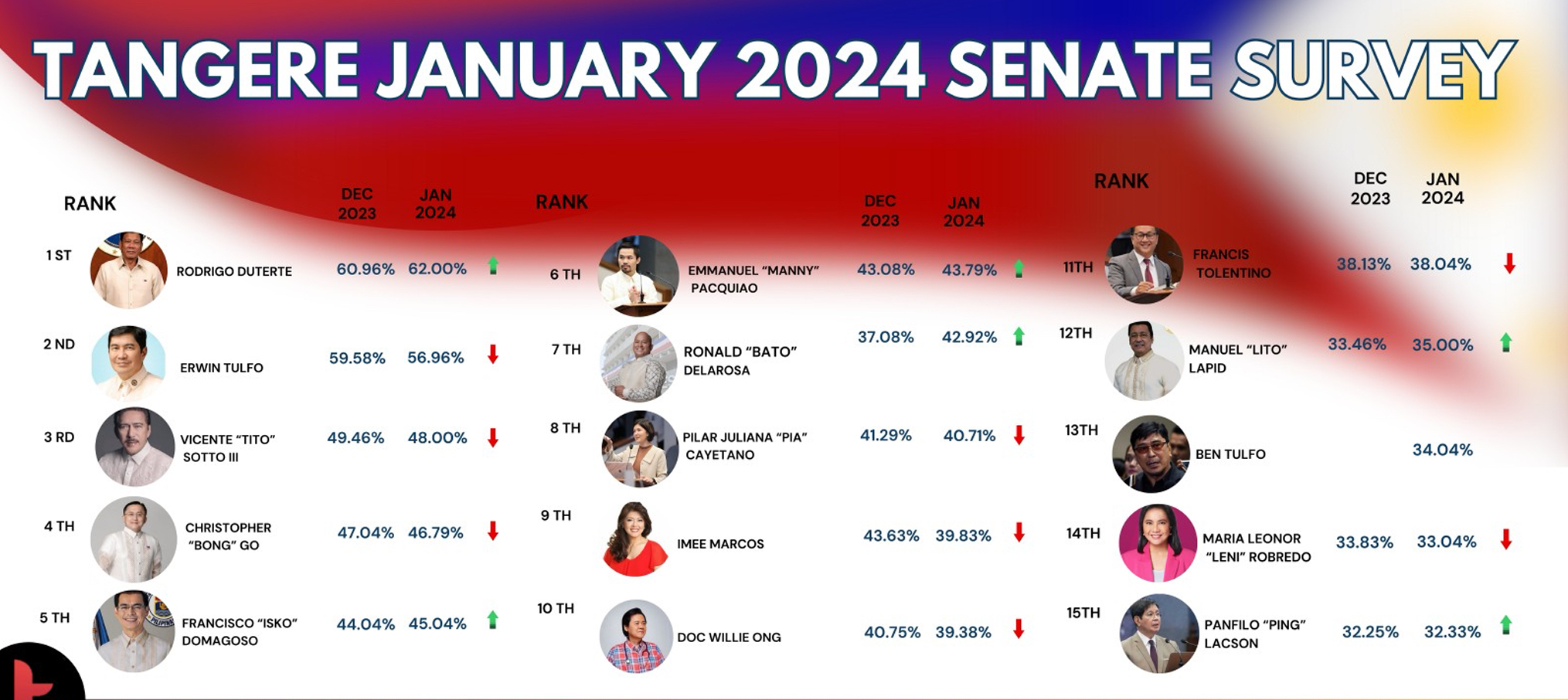Former President Duterte still top 2025 senatorial bet — survey

Former President Rodrigo Duterte remained the leading potential senatorial candidate for the 2025 elections, based on the January 2024 survey conducted by big data research firm Tangere.
Duterte received 62 percent of voter support in a mobile-based survey conducted between Jan. 10 and 12.
“President Rodrigo Duterte maintained the top spot, even posting a 1 percent increase in voter preference (from the December 2023 survey),” Tangere said.
Meanwhile, ACT-CIS Party-list Rep. Erwin Tulfo came in 2nd place with 56.96 percent of voter support.
Although he remained in 2nd place, Tangere said Tulfo's voter preference fell by 2.6 percent from 59.58 percent in the previous survey.
Former Senator Vicente "Tito" Sotto III (48 percent), Senator Christopher "Bong" Go (46.79 percent), and former Manila Mayor Francisco "Isko Moreno" Domagoso (45.04 percent) finished 3rd to 5th, respectively.
From 6th to 10th places were former Senator Manny Pacquiao (43.79 percent), Senator Ronald “Bato” Dela Rosa (42.92 percent), Senator Pia Cayetano (40.71 percent), Senator Imee Marcos (39.83 percent), and physician Willie Ong (39.38 percent).
Tangere noted that Dela Rosa had the highest increase in voter preference, up by 5.84 percent from 37.08 percent in the previous survey.
Meanwhile, Ong’s ranking dropped from 9th to 10th.
“Among the incumbent senators, Senator Imee Marcos received the highest drop in approval rating with a decrease of 3.80 percent voter preference, falling from 6th place last December to 9th place in January,” Tangere said.
Senator Francis Tolentino (11th, 38.04 percent) and Senator Lito Lapid (12th, 35 percent) rounded out the top 12 potential senatorial candidates.
“Nearly making the top 12 are broadcaster Ben Tulfo (13th, 34.04 percent), former Vice President Leni Robredo (14th, 33.04 percent), and former Senator Ping Lacson (15th, 32.33 percent),” Tangere added.
Tangere's 2025 Senate Survey was administered via a mobile-based respondent application to a sample size of 2,400 participants.
The proportion was spread across the Philippines, with 12 percent coming from Metro Manila, 23 percent from Northern Luzon, 22 percent from Southern Luzon, 20 percent from Visayas, and 23 percent from Mindanao.